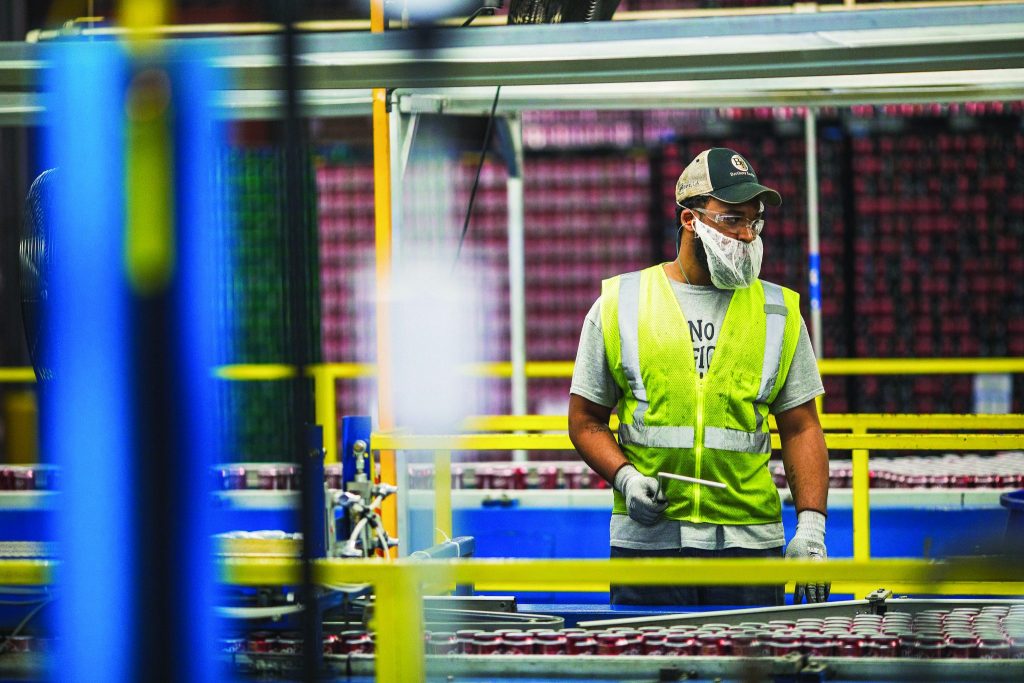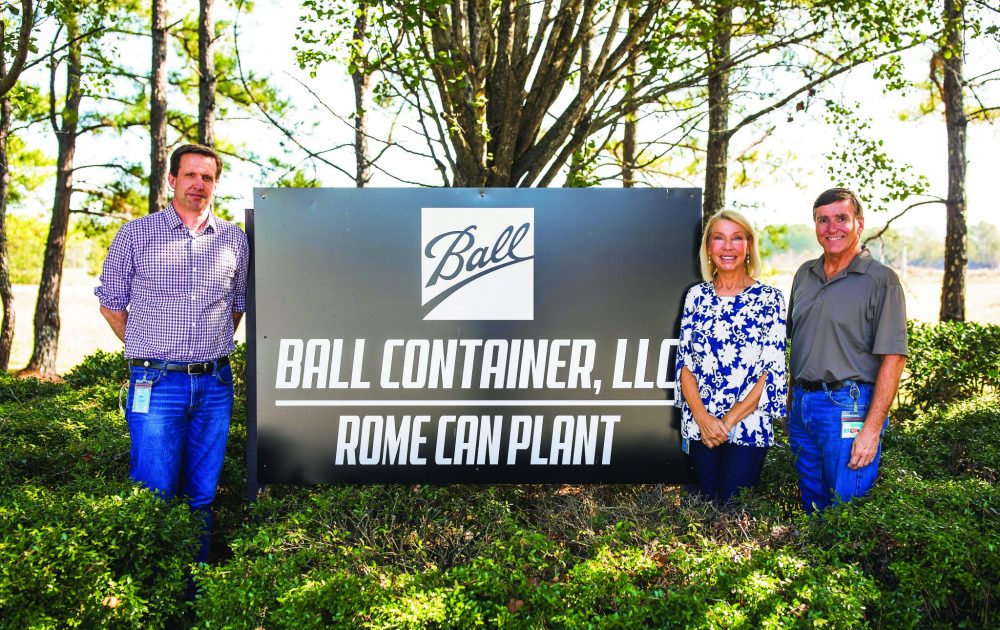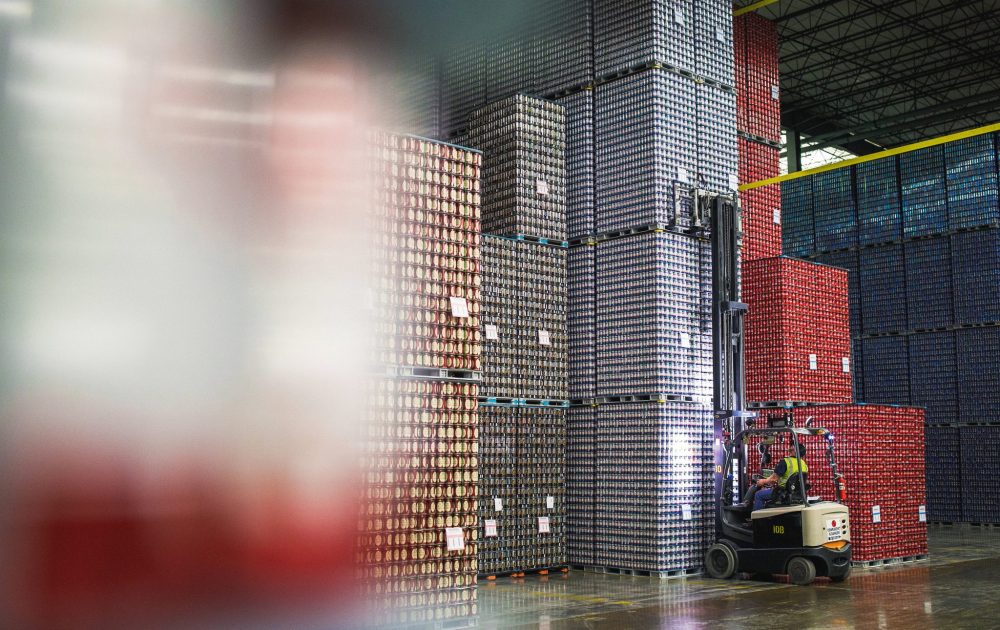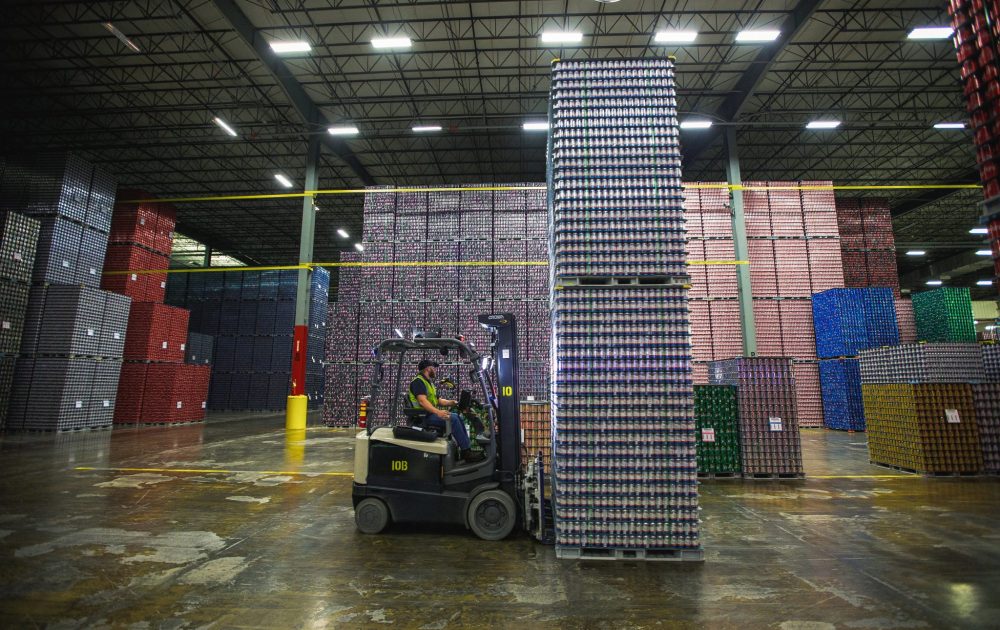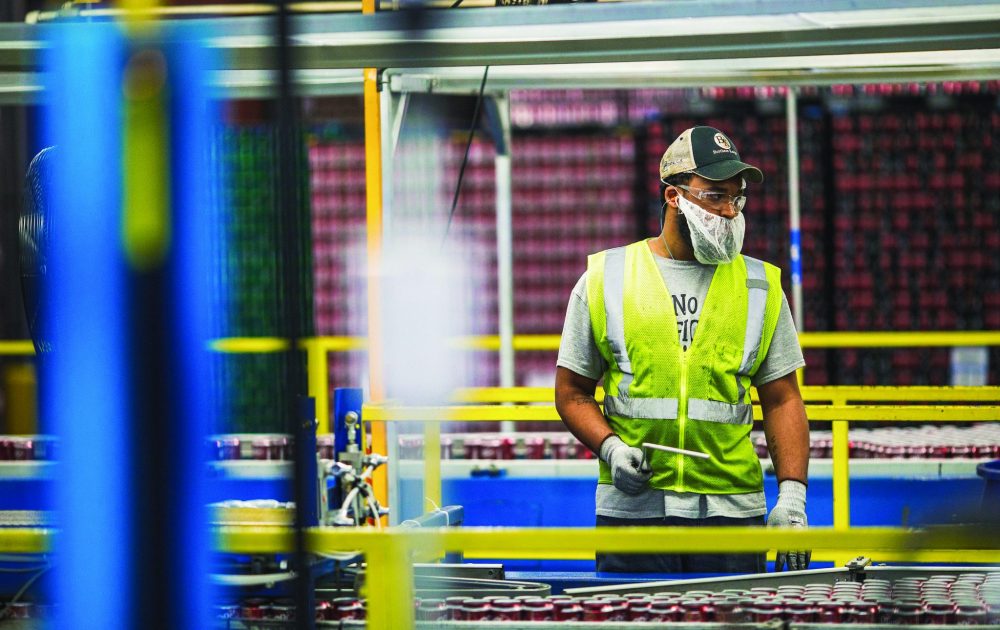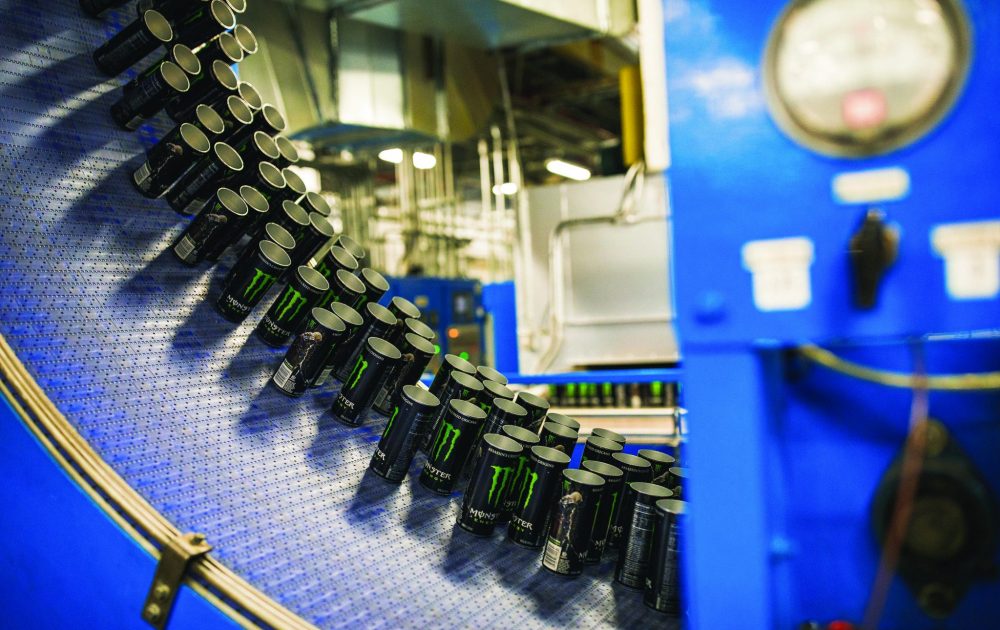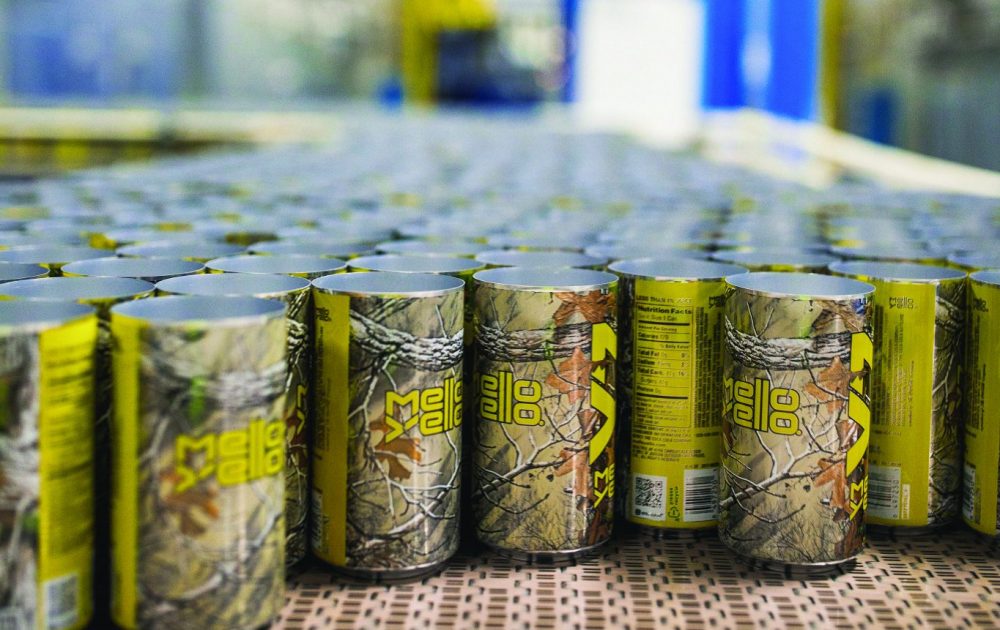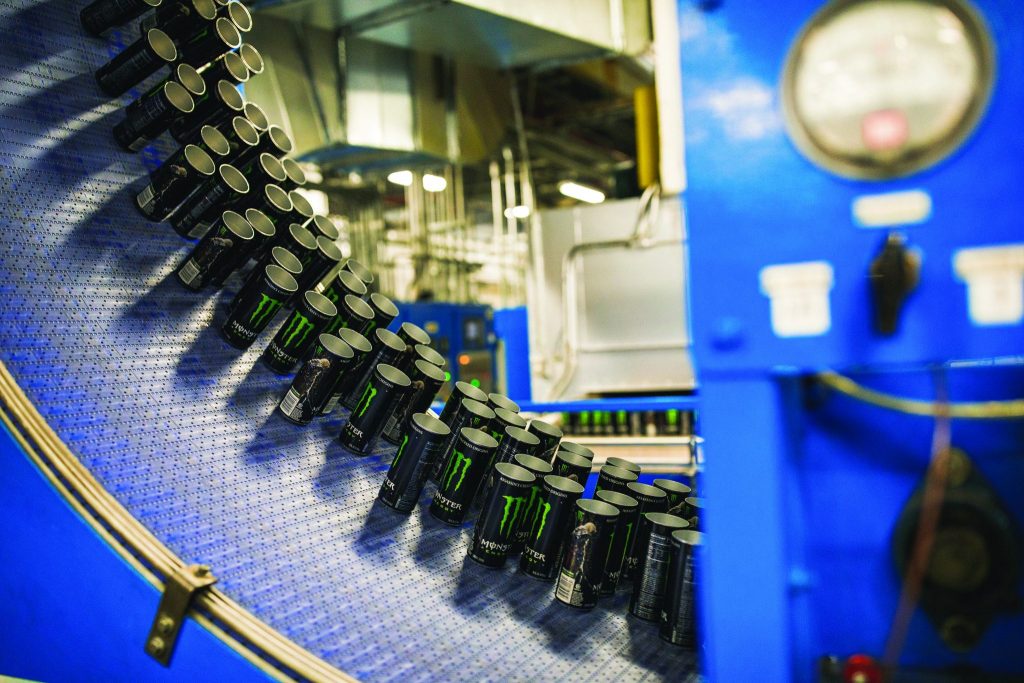
Photos by Cameron Flaisch
Finding inspiration in places least expected is always nice. However, when the anticipation of an upcoming event is at a fever pitch, and when the time arrives to finally take it all in, discovering that your curiosities had only scratched the surface is another joy altogether.
While the idea of seeing one of America’s favorite packages for carrying a beverage, the aluminum can, being fashioned from massive rolls of aluminum is intriguing, the philosophy behind the production practices of Ball Corporation are what makes getting a glimpse inside their walls a worthwhile trip. As we begin this journey through the process, it becomes quite apparent that the product is a direct reflection of the people who have taken ownership in a company that never misses a chance to give back to the community it serves.
Kevin Kohinke, plant manager for Ball Corporation’s Rome location, oversees the production of 11 to 12 million aluminum cans a day, totaling over 4 billion cans annually. And if you are wondering where you may have seen the name Ball, the company did not start with manufacturing aluminum cans and the forward thinking of the company has taken their products into the stars.
Five brothers, George, Lucius, Frank, Edmund and William Ball founded Ball Corporation more than 135 years ago in the year 1880. Leslie Schell, human resources manager for the Rome plant, is kind enough to provide some info about the roots of this now world-recognized brand. “Our plant here in Rome has been around for what will be 25 years next year, so we are excited about celebrating our 25th year in Rome,” she says. “We opened this plant in 1993 and we were owned by Anheuser-Busch Metal Container Corporation. In October 2009, Ball Corporation bought four Anheuser-Busch Metal Container Corporation plants and Rome was included in the purchase.
“The Ball Brothers initially went into business in Buffalo, New York making wood-jacketed tin cans for products like paint and kerosene,” Schell continues, “but soon expanded their offerings to glass containers. By 1884 the brothers began making glass home-canning jars, the product that established Ball as a household name. They eventually moved their headquarters from New York to Muncie, Indiana to take advantage of the abundant natural gas reserves essential to making glass. Ball grew rapidly in the ensuing decade and has been in more than 45 businesses since its founding. Ball no longer manufactures canning jars, but has expanded and grown significantly.”
Today, Ball is a worldwide metal packaging company that makes billions of recyclable metal containers, and a unique cutting-edge aerospace business that designs one-of-a-kind solutions to answer scientific and technical challenges. Ball manufactures on four continents and is now based in Broomfield, Colorado. They have four lines of business that include: metal beverage packaging, metal food packaging, metal aerosol packaging and aerospace.
The largest division is the global metal beverage packaging with customers like Coca-Cola, Pepsi, A-B InBev, MillerCoors, Monster and many regional craft beers. From tea to energy drinks, Ball Corp provides over 50 billion recyclable aluminum cans a year worldwide, complete with printed labels, to their customers.
“Our Aerospace division is an exciting part of what we do at Ball. They manufacture spacecraft and satellites, sensors and cameras that give warfighters a battlefield advantage, and space-based sensors for science missions like Kepler and Hubble, and enable scientists to track earth’s weather and climate. It is one of our more glamorous divisions, because we really do have rocket scientists working for Ball.,” Schell laughs.
With innovation leading the way, the Ball Corporation Rome Plant has worked to reduce their environmental impact while still running one of the fastest aluminum can production lines in the world. Nothing is wasted as huge coils of aluminum run through machines that turn them into what resembles an open-ended hockey puck. From there, Ball workers operate machines that stretch the cans into 12 and 16-ounce forms, other employees operate the machines that prints the familiar labels associated with our favorite brands onto the cans.
When the process is complete, the watchful eyes of their employees check for quality as pallets of over 8000 cans are whisked about the warehouse on forklifts. These pallets, stacked four high, create a maze of labels we are recognize, like Bud Light beer, as well as seasonal designs that many of us have never seen.
The entire process, set to the whir of the machinery, is like a dance. Each employee is a link in the chain and as the cans waltz from one area to the next, they look a little different than they were before. Seeing human ingenuity and teamwork at its best is an artform and Ball has made sure they remain on the cutting edge of their discipline.
“We are a safety-first facility and we have even implemented a tobacco-free workplace policy because we want to care for our most precious resource, our people. We are also very focused on sustainability here at our Ball Rome plant, so we have worked to become the landfill-free facility we are today,” Schell says when discussing Ball’s approach to manufacturing. “We waste nothing. All of our scrap aluminum is recycled, and the coils of aluminum that we use are mostly composed of recycled aluminum. An aluminum can is infinitely recyclable, and it can be recycled and returned to a store shelf as a new can in just 60 days.”
Perhaps this is where a company like Ball, that has become as American as apple pie, shows why they have been in business for over a century. They are proud of their rich history and they believe in their people and their culture. They know they must have the best people and provide them the right support, rewards and growth opportunities. They strive to be the best at everything they do and know they must have a customer focus.
Schell, who found Rome by way of a transfer from a Ball facility in Gainesville, Florida, believes in her company’s philosophy.
“Really, when I think about this plant and others I have been a part of, the culture is always the same. It starts with our people; they are our greatest asset. We operate very lean, which means we don’t have a lot of employees running around with free time. We put a lot of demands on our employees and they answer the call to meet those demands,” Schell explains. “We believe in training and developing our employees so that they can be empowered and engaged in our process. Because of this method, we have employees who act like owners. Proof that this works for us is that our average length of employment is around 15 years.”
With community projects for Habitat for Humanity, and monthly volunteer opportunities at our local Community Kitchen and Action Ministries food pantry, the Ball plant in Rome supports Ball Corporation’s community initiatives. Employee community engagement is an essential element of Ball’s corporate citizenship strategy. Their Ball Community Ambassador program is designed to maximize employee participation in the community. The program also helps encourage and support employee giving. Employees are encouraged to give back, and Ball Corporation helps by putting $20 per hour spent volunteering into a giving account fund for their workers. These funds are set aside for the employees to, in turn, donate to a charity of their choice. And, the program provides a dollar-for-dollar match for employee monetary contribution to non-profit organizations.
“We also support many charities and local fund-raising events through sponsorships and we hope that this is making a difference in our community. We enjoy hosting visits from local schools and colleges, and showing them what we do here at our plant. Our goal is to be a good neighbor and great corporate citizen in our community and this is a goal we will continue to build on,” Schell says.
Oftentimes, we don’t give much thought to how we enjoy a beverage. After a day of learning about the small ways we can preserve this land for our children and grandchildren, the decision becomes one of more importance. What don’t we love about the aluminum can? The pop of the top is universally recognized as a refreshing sound, it’s lightweight, fully recyclable, quickly chilled, easy to store and cost-effective.

